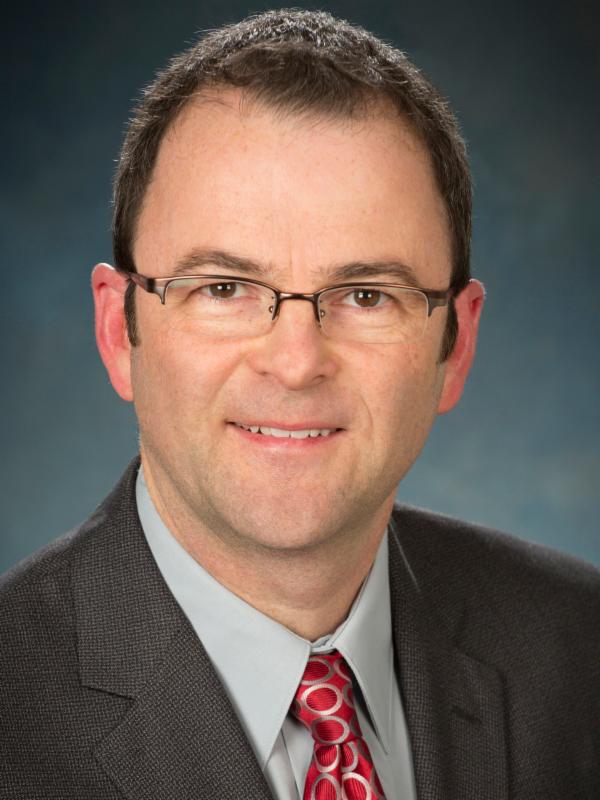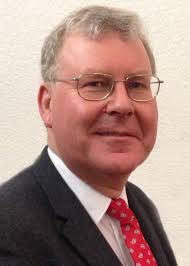|
Lesley Ferris
Distinguished Professor of Theatre
"Grim, Muddy History Lesson in OSU's Forbidden Zones"
"Silent memorial held at OSU to commemorate 100th WWI anniversary"
|
|
Rick Herrmann
Chair of Political Science
"Ohio senators agree with President Trump's decision to bomb Syria"
|
|
Peter Mansoor
Gen. Raymond E. Mason Jr. Chair in Military History
"Local military expert weighs in on effects of air strike on Syria"
|
|
Margaret Newell
Professor of History
"Slavery beyond the South"
|
|
Ines Valdez
Assistant Professor of Political Science
|
Mershon Memo is a weekly e-mail newsletter distributed by the Mershon Center for International Security Studies, a unit of the
Office of International Affairs at The Ohio State University.
|
|
 |
|
 |
 |
Monday, April 10, 2017
Joseph J. Kruzel Memorial Lecture
Larry Diamond
"The Crisis of Liberal Democracy"
2 p.m., 120 Mershon Center, 1501 Neil Ave.
 Larry Diamond
Larry Diamond is senior fellow at the Hoover Institution and founding co-editor of
Journal of Democracy. During early 2004, he served as a senior adviser on governance to the Coalition Provisional Authority in Baghdad. His 2005 book,
Squandered Victory: The American Occupation and the Bungled Effort to Bring Democracy to Iraq, was one of the first books to critically analyze America's postwar engagement in Iraq. He has edited 36 books on democracy, including
How People View Democracy, How East Asians View Democracy, Latin America's Struggle for Democracy, Political Change in China: Comparisons with Taiwan, and
Assessing the Quality of Democracy. In this event, Diamond will review the trends in freedom and democracy over the last decade and explain why liberal democracy is now in danger in the one place where it was presumed to be stable: The West. Read more and register at
go.osu.edu/diamondl
|
Friday, April 21, 2017 - Saturday, April 22, 2017
War, Media and the Public
Organized by Christopher Gelpi
120 Mershon Center, 1501 Neil Ave.
 The public's ability to form attitudes and opinions that guide decisions to use military force is among the most important duties of citizens of democratic nations. Yet most voters have virtually no direct exposure to warfare. Americans receive essentially all of their information about war through the lens of the national media. Media norms and practices about the coverage of war have changed dramatically over the past century, ranging from the "yellow journalism" of the turn of the 20th century, through the "golden age" of television journalism of towering figures like Walter Cronkite, to the splintered and partisan media environment of the internet. In this conference we will explore the evolution of these media norms and practices as well as their impact on how the public thinks and feels about war. Read more and register at
go.osu.edu/warandmedia
|
Friday, April 28, 2017 - Saturday, April 29, 2017
Military Frontiers: A Graduate Student Symposium
Organized by Mason Watson and Max von Bargen
120 Mershon Center, 1501 Neil Ave.
 This year's Military Frontiers conference showcases the scholarship of 12 graduate students who study topics relating to the management of force and power in international affairs. The conference is interdisciplinary; the presenters represent a range of academic fields, and their research is based in a variety of methodologies. By bringing together up-and-coming scholars working on similar topics, the conference aims to promote communication and cooperation across academic disciplines.
Gary Sheffield, professor of war studies at University of Wolverhamption, will give the keynote address on "How The West Won World War I." Read more and register at
go.osu.edu/militaryfrontiers17
|
 |
 |
Conference to explore war, media and public opinion
One of our most important duties as citizens is to form attitudes and opinions that may help guide American decisions about the use of military force. This duty became even more important as the United States rose to the status of a Great Power capable of intervening in conflicts around the world, most recently in the Middle East.
 |
|
 |
Christopher Gelpi |
Yet throughout America's time as a Great Power, our geographic isolation, physical security, and reliance on an increasingly narrow cross-section of volunteers for military service have all meant that American citizens are almost never directly exposed to war. As a result, Americans receive essentially all of their information about war through the lens of the national media.
Media norms and practices in covering war have changed dramatically over the past century, from "yellow journalism" at the turn of the 20th century, through the "golden age" of television with towering figures like Walter Cronkite, to the splintered and partisan media environment of the internet.
In
War, Media and the Public, we will explore the evolution of these media norms and practices, as well as their impact on how the American public thinks and feels about war. The conference, organized by
Christopher Gelpi, Chair in Peace Studies and Conflict Resolution, will take place Friday, April 21, through Saturday, April 22, 2017, at the Mershon Center for International Security Studies, 1501 Neil Ave.
See the conference program, conference poster, and list of participants, and register for the event at
go.osu.edu/warandmedia
|
 |
Tuesday, April 11, 2017
Amartya Sen
"What's Wrong with Inequality?"
4 p.m., Mershon Auditorium, 1871 N. High St.
Sponsored by Center for Ethics and Human Values
 Amartya Sen
Amartya Sen is Thomas W. Lamont University Professor and professor of economics and philosophy at Harvard University and was until 2004 the master of Trinity College, Cambridge. He is also senior fellow at the Harvard Society of Fellows. Sen has made contributions to welfare economics, social choice theory, economic and social justice, economic theories of famines, and indexes of the measure of well-being of citizens of developing countries. He was awarded the Nobel Memorial Prize in Economic Sciences in 1998 and Bharat Ratna in 1999 for his work in welfare economics. He was also awarded the inaugural Charleston-EFG John Maynard Keynes Prize in recognition of his work on welfare economics in February 2015. In this lecture, Sen will examine three reasons why inequality is socially unreasonable.
Read more and register
|
Thursday, April 13, 2017
Julie Demuth
"Risk Communication, Assessment, and Responses to Extreme Weather"
4 p.m., 164 Howlett Hall, 2001 Fyffe Court
Sponsored by School of Environment and Natural Resources
 Julie Demuth
Julie Demuth is project scientist at the University Corporation for Atmospheric Research, Regional Climate Research, Mesoscale and Microscale Meteorology Laboratory. In this talk, she will discuss efforts to examine risk communication, assessment, and responses to extreme weather through different research methods, with different populations, and for different weather hazards. This event is part of the
SENR Seminar Series and will also be available through
Carmen Connect.
|
Thursday, April 13, 2017
"'Post-Truth' Moments in History"
7 p.m., Columbus Museum of Art, The Forum, 480 E. Broad St.
Sponsored by Clio Society, Department of History
 The Oxford English Dictionary has named "post-truth" the word of 2016. Post-truth is defined as, "relating to or denoting circumstances in which objective facts are less influential in shaping public opinion than appeals to emotion and personal belief." Our panel hopes to look at different historical contexts/cases where generally accepted "truths" were somehow rendered unimportant, whether deliberately or unintentionally, thereby providing historical context for our more recent "post-truth" moments. Panelists include
John Brooke, Department of History (left);
Greg Anderson,
History;
Melissa Curley, Comparative Studies; and
Bert Harrill,
History.
Read more
|
Friday, April 14, 2017
Karen Seto
"Future Urban Expansion and Implications for Building Energy Demand and Global Croplands"
3:30 p.m., 1080 Derby Hall, 154 N. Oval Mall
Sponsored by Department of Geography
 Karen Seto
Karen Seto is professor of geography and urbanization science at the School of Forestry and Environmental Studies, Yale University. Her talk will draw on recent research that examines the implications of future urban expansion on global croplands and energy demand by buildings. Using both top-down and bottom-up approaches and scenarios, Seto finds that energy use for heating and cooling by mid-century will increase 5 to 40 percent over the 2010 estimate. The results also show that urban expansion will result in a 1.8 to 2.4 percent loss of global croplands by 2030, with substantial regional disparities. About 80 percent of global cropland loss from urban expansion will take place in Asia and Africa, where much of the cropland that will be lost is more than twice as productive as national averages.
Read more
|
 |
Academy of Teaching to hold annual conference May 4
Ohio State's Academy of Teaching will host its annual Conference on Excellence in Teaching and Learning on Thursday, May 4, at the Nationwide and Ohio Farm Bureau 4-H Center. This conference is a venue for members of The Ohio State University community to share innovative and interesting, evidence-based ideas for the improvement of teaching effectiveness and student learning outcomes. Our session facilitators will demonstrate engaging teaching techniques while sharing ideas you can borrow to enhance your own courses.
|
Society for Risk Analysis seeks conference abstracts
The
Society for Risk Analysis (SRA) invites your abstracts for presentations at the 2017 SRA Annual Meeting in Arlington, Va., on December 10-14, 2017. We welcome contributions on any topic related to risk assessment, risk characterization, risk perception, risk communication, risk management, risk governance, and policy relating to risk, in the context of risks of concern to individuals, to public and private sector organizations, and to society at a local, regional, national, or global level. The theme of the conference "Risk Analysis - the Profession, the Practitioners, the Research" highlights the important role risk analysts have in tackling risk problems and improving the science and practice of risk analysis. Abstracts are due no later than May 31, 2017, midnight EST.
Read more and submit
|
|
|